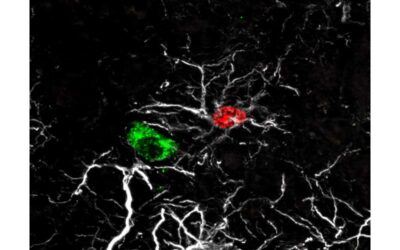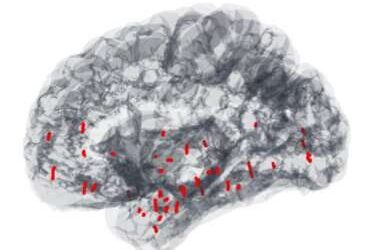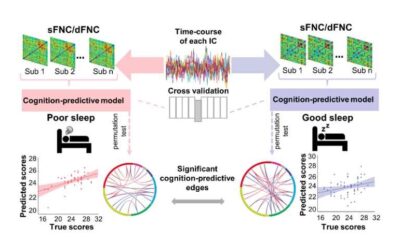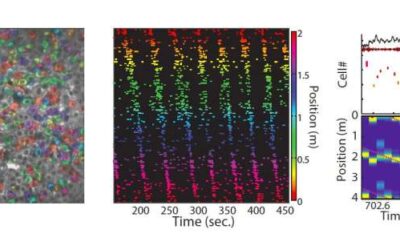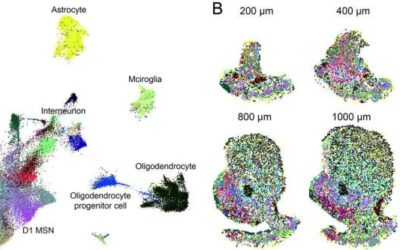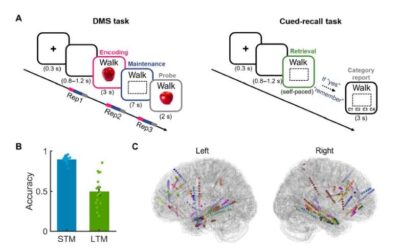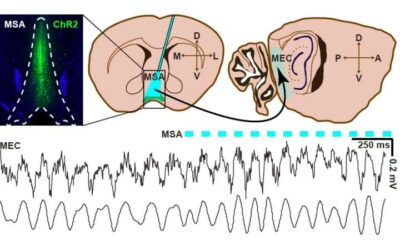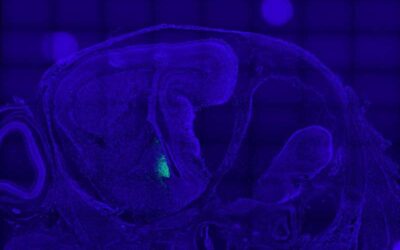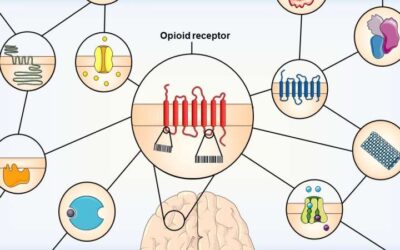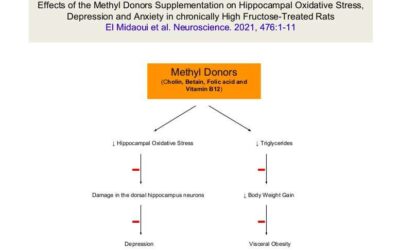Gonadotropin-releasing hormone (GnRH) is the primary hormone regulating sexual reproduction in humans and other mammals. Past neuroscience studies have found that GnRH-producing neurons migrate from a region in the nose known as the nasal placode to the anterior part...
Neuroscience
Study explores the neural dynamics of mindfulness meditation and hypnosis
In recent decades, psychologists and psychotherapists have developed a wide range of new therapeutic approaches and strategies to increase their patients' wellbeing. Two distinct practices found to be particularly promising are mindfulness meditation and hypnosis.
The possible effects of sleep quality on cognitive function in healthy older adults
In humans, aging is often associated with changes in sleeping patterns, cognitive abilities and functional network connectivity (i.e., the strength with which activity in different brain regions correlates over time). While many neuroscientists investigated these...
Reactivation in the hippocampus could support the consolidation of long-term cognitive maps
The hippocampus is an area of the brain known to play a key role in the encoding of long-term memories. In addition to contributing to the formation of event-related memories, this brain region supports the creation of so-called cognitive maps. These are mental maps...
Study constructs a molecular and cellular taxonomy of the mouse nucleus accumbens
The nucleus accumbens (NAc) is an area of the brain known to play a key role in regulating a variety of reward-related behaviors, including appetitive and aversive responses, feeding, social interactions and some types of learning. Studies on both humans and animals...
Study shows that memories pass through many transformation stages as they are encoded
Memory, the human ability to recall things that happened in the past, is one of the topics most widely investigated by neuroscientists and psychologists. Past studies have collected extensive evidence suggesting that memory is a dynamic process, rather than a static...
Past research suggests that brain oscillations may support different cognitive functions by coordinating spike timing inside and across different brain regions. However, the role that the timing of these oscillations plays in specific neural computations is still unclear.
Past research suggests that brain oscillations may support different cognitive functions by coordinating spike timing inside and across different brain regions. However, the role that the timing of these oscillations plays in specific neural computations is still...
Locally produced neurosteroids regulate the emerging reproductive neural circuitry in the embryonic mouse brain
The onset of puberty, the developmental stage at which adolescents reach sexual maturity, is known to be associated with the activity of a specific class of neurons, namely gonadotropin-releasing hormone (GnRH) neurons. Past neuroscience research revealed that while...
Study examines the differences between opioid receptor subtypes
Opioid receptors are proteins in the central nervous system that are targeted by opioid drugs for pain relief. There are three subtypes of opioid receptors, MOP, DOP and KOP, in addition to the opioid-related NOP receptor.
Effects of methyl donors on hippocampal oxidative stress, depression and anxiety
Oxidative stress is a condition resulting from an imbalance between the generation of reactive oxygen species (i.e., molecules containing oxygen with an uneven number of electrons) and the ability of antioxidants (i.e., molecules that can donate one electron to other...

